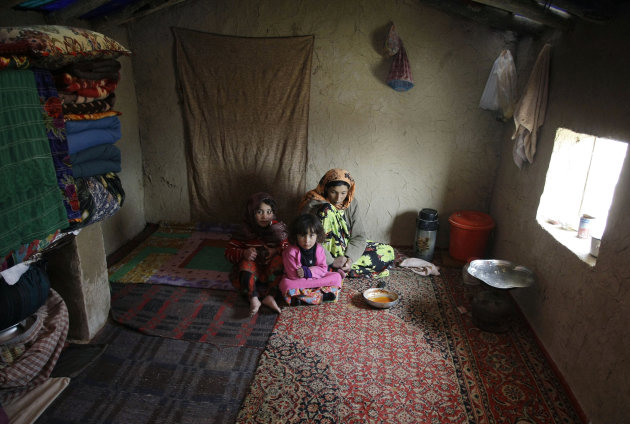Associated PressMore than 2 million Afghans are at risk from cold, disease and malnutrition this winter as an international appeal for funds to help one of the world's poorest countries has fallen drastically short of its goal, the United Nations and several humanitarian agencies warned on Wednesday. Only 48 percent of $448 million that has been requested to help 8.8 million Afghans had been pledged by the end of November, according to the U.N. Office for the Coordination of Humanitarian Affairs. Preparations are under way to help Afghans deal with harsh winter conditions, especially 400,000 people who live in some of the most remote mountainous areas of northern and central Afghanistan. Snow has already covered mountaintops and the first snowfall of the year was forecast for later this week in the Afghan capital, Kabul. Last year, Afghanistan experienced its coldest winter and heaviest snowfall in more than 15 years. "People live in remote areas with no access to health facilities," said Mohammad Daim Kakar, director of the Afghan National Disaster Management Authority. "Many people die of pneumonia and measles." According to the U.N. and other humanitarian agencies working here, 20 of Afghanistan's 34 provinces have high-risk areas where emergency food, fuel and medical supplies are needed. "I think the events of last year have meant that we need to be prepared and have a response ready," said Mark Bowen, the U.N. humanitarian coordinator for Afghanistan. Heavy snows and avalanches killed dozens of people in parts of the country last winter, including more than 30 — many of them children — who froze to death in Kabul. The Afghan capital is home to 55 makeshift camps that house more than 30,000 people — many of them displaced from elsewhere in Afghanistan because of violence. "If we buy food we will die of the cold. If we don't buy food, we will starve," said Hachilai Khan, a 20-year-old laborer who has made an informal settlement on the outskirts of Kabul his home. The settlement, made up mainly of Afghan refugees who returned from Pakistan, houses 552 people from 90 families. Most live in mud huts covered with plastic sheeting or tarps. The mud floors are covered with plastic or old carpeting. To keep warm, residents burn scrap wood and dried animal dung. There is no running water and toilets are trenches dug near the makeshift homes. "All these residents are vulnerable. They need firewood, clothes, blankets and shelter material," said Rachel Eskrine, who works with the French humanitarian organization Solidarites International. The needs of these people haven't disappeared, but the money has. "There is general donor fatigue," said Bowen, the U.N.'s humanitarian coordinator. "And more so, there is also Afghan fatigue." The Afghan Consolidated Appeal, which was made on behalf of 63 humanitarian agencies for 171 projects around Afghanistan, received just $214 million — about 48 percent of what it required. Separately, other donors contributed another $270 million for projects outside the appeal, bringing the total humanitarian commitment for Afghanistan to $484 million, or half the $894 million spent in 2011.
M WAQAR..... "A man's ethical behavior should be based effectually on sympathy, education, and social ties; no religious basis is necessary.Man would indeed be in a poor way if he had to be restrained by fear of punishment and hope of reward after death." --Albert Einstein !!! NEWS,ARTICLES,EDITORIALS,MUSIC... Ze chi pe mayeen yum da agha pukhtunistan de.....(Liberal,Progressive,Secular World.)''Secularism is not against religion; it is the message of humanity.'' تل ده وی پثتونستآن
Wednesday, December 12, 2012
UN: Over 2 million Afghans at risk this winter
Subscribe to:
Post Comments (Atom)

No comments:
Post a Comment